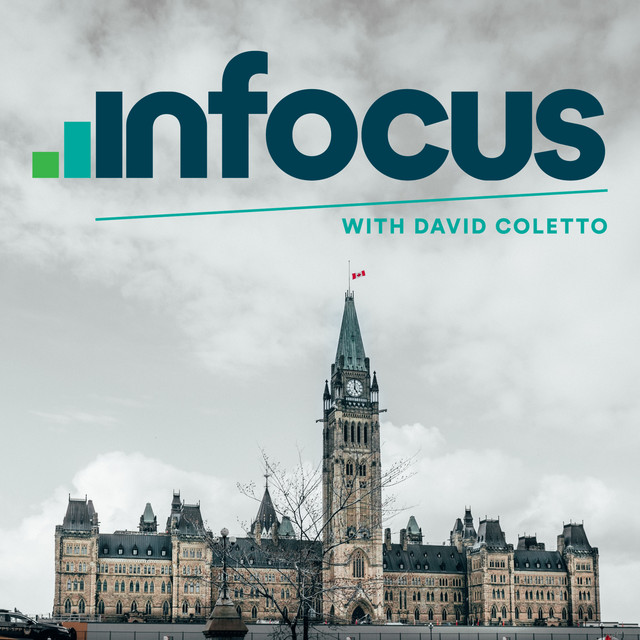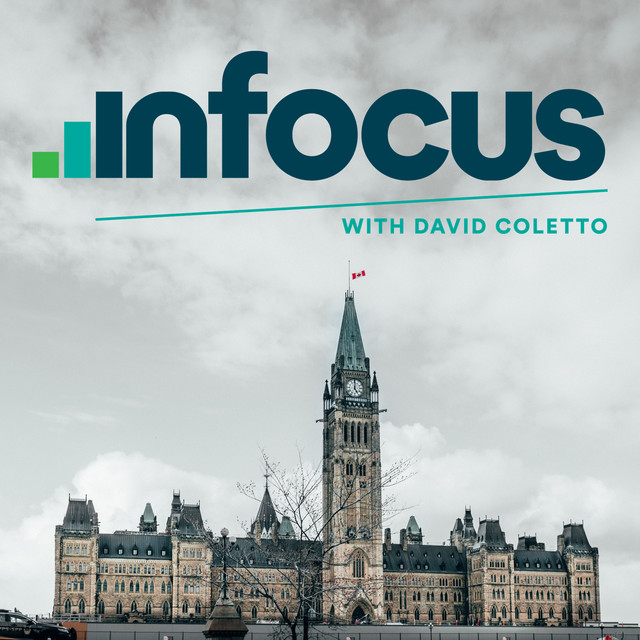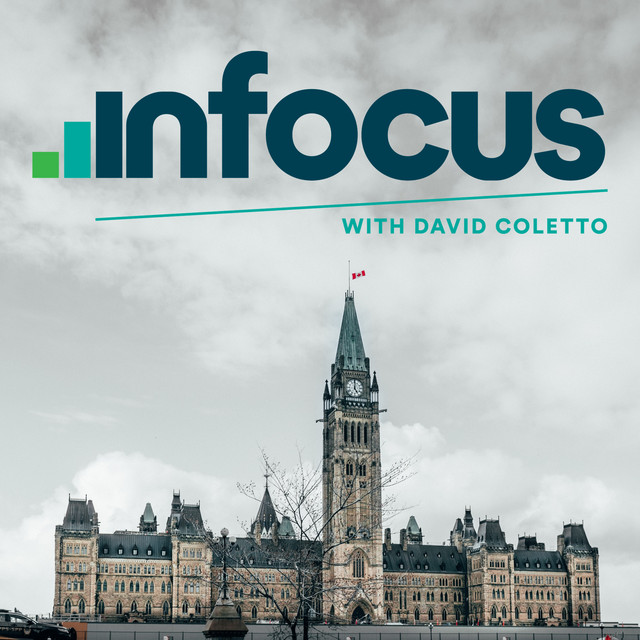Episode Transcript
[00:00:00] Foreign.
[00:00:19] Well, hey there. Welcome back to In FOCUS with David Coletto. I'm David Coletto. Today we're delving into the fascinating results of a recent survey I conducted with abacus data on how Canadians plan to vote in the current federal election. But more importantly, why? We asked supporters of those who said they were going to vote Liberal or Conservative to share their motivations in their own words, unprompted. And I think their answers reveal a lot about what's driving voter preferences on both sides. In this episode, I'll walk you through the key themes that emerged, ranging from concerns about Donald Trump and leadership transitions to cost of living pressures and Canadians desires for a fresh start or perhaps for renewed leadership within the same governing party. So let's jump in and discover what the survey responses tell us about the current political climate in Canada now. One of the first things that stands out is how frequently respondents refer to either continuity or change. Conservative supporters overwhelmingly mention that they've had enough of the Liberals. In fact, the phrase we saw come up again and again was it's time for a change. Folks cited frustration with what they see as high interest rates, grocery prices and a rising cost of living under the Liberal government. After nearly a decade in power, the Liberals, led by outgoing prime minister, appear to have worn out their welcome among these respondents. Even with a new leader in Mark Carney, many Conservatives feel that it's simply time for a different direction.
[00:01:54] On the other hand, Liberal supporters see new leadership within the same party as an opportunity to rejuvenate and press forward on the issues they care about. Instead of calling for a wholesale change in governing party, many Liberal voters emphasize Mark Carney, their newly elected leader, who's described by respondents as experienced, intelligent and prepared to tackle Canada's biggest challenges, especially economic ones. Whether people say they're tired of the status quo or that a fresh face in the same party excites them, the matter of leadership is clearly pivotal for Conservatives, Pierre Poliev is positioned as the leader who will rein in spending and address cost of living concerns. For Liberals, Carney is cast as a globally respected figure with deep financial experience. Both sets of voters want competence and trustworthiness. They just disagree, not surprisingly, on who embodies that best.
[00:02:57] Now let's talk policy. Perhaps unsurprisingly, economics and the cost of living are front and center for both groups. Although they frame these issues differently, Conservative voters largely focus on controlling taxes, cutting costs, and rolling back what they view as as excessive spending. Under the Liberals, they often talk about common sense, fiscal responsibility and ensure that everyday Canadians can afford the basics. This worry about affordability aligns with a broader narrative that the country's finances need to be reined in now. Liberal voters are more concerned about the cost of living, perhaps, or at least they appear to be. But they place particular faith in Mark Carney's economic expertise. They see him as someone who will bring strong leadership and stability in the face of inflation or other economic turbulence created, for example, by Donald Trump. Some highlight his past roles in finance, suggesting that his reputation as a global figure sets him apart and makes him uniquely capable of guiding Canada's economy forward.
[00:04:05] Beyond purely economic issues, one theme that appears very prominently in the Liberal responses is Donald Trump himself. Many Liberal supporters say they trust Carney to stand up to Trump, defend Canadian interests, or specifically manage tariff disputes with the United States. That language stand up, protect, hold the line creates a sense that they believe a firm, experienced hand is essential for dealing with any future tensions arising from south of the border. For Conservative voters, Trump is not merely on the radar as a major motivator, but something more. Their emphasis on change, cost of living and tax reductions overrides any direct reference to US Politics. Instead, they want the federal government to focus on the Canadian economy, controlling immigration and protecting what they see as Canadian freedoms or values. Some highlight a distrust of what they call the Liberals quote globalist agenda, implying they perceive the Liberals as too intertwined with international issues at the expense of domestic concerns. Finally, social issues also make a cameo. Liberal supporters repeatedly mention support for health care, education, social equality, and a much more progressive approach to climate change.
[00:05:27] Some explicitly say I'll always vote Liberal because I believe they look out for Canadians. Meanwhile, Conservatives emphasize a need to preserve traditional values, protect local industries, and ensure that Canadians see real improvements to their daily lives rather than expansions of global programs.
[00:05:53] Now we also see a strong current of people voting against the opposing party rather than enthusiastically for their preferred one. Among Liberal supporters, there's repeated talk of blocking the Conservatives and preventing Pierre Poliev, described by some as dangerous or untrustworthy, from becoming prime minister. For these voters, even if they are lukewarm on the Liberals, they say they want to keep the Conservatives out because they believe the Conservative agenda might harm social programs or align too closely with Trump and his style of politics. Conservative voters are just as empathetic about wanting to oust the Liberals. Many express deep frustration, use strong language about how they feel this government has ruined the economy or tarnish Canada's image. They often mention they don't trust the Liberals anymore, especially since they've been in power for so long. Some mention tradition, too, being raised in Conservative households or believing that Conservative policies better reflect their family values. So what does all this mean? Well, if these sentiments translate to votes, the election is shaping up to be a very real clash of visions and framing. For Liberals, Carney's leadership is the key selling point. For Conservative, it's Paglia's promise for change. Both sides highlight the need to fix economic challenges, but with radically different approaches, one favoring a fresh perspective within the same party and strong financial credentials, and the other seeking a clean break with the past decade. And of course, the specter of Donald Trump looms large for Liberals, much less so for Conservatives, pointing to a major divide which I've described and we see clearly in our polling time and time again. At the end of the day, whether you're firmly in one camp or still undecided, I think these survey responses just show how important leadership, cost of living pressures and Donald Trump are in shaping Canadian voter intentions today. The next time someone says elections are only about local issues or personalities, remember that it's almost always a mix. We care about pocketbook issues. Right now, we're looking across the border with fear and anger. We evaluate new leaders, but sometimes vote strategically to keep the other side out.
[00:08:12] That wraps up today's episode of In Focus with David Coletto. I hope this look at the motivations that deeper dive into what's driving Liberal and Conservative voters in Canada help shine a light on some of the driving forces behind this election. Now, there's no shortage of passions out there. I think there's an engaged, interested, focused electorate that is paying a lot of attention to what we're seeing. As always, thank you for tuning in. If you found this episode insightful, please share it with somebody else. Subscribe or follow me wherever you listen to podcasts. And don't forget to subscribe to my substack David Coletto1l2t's.subs.com got lots more data I've written about this piece. See that out tomorrow. Until next time, I'm David Coletto. Stay informed. Stay engaged. Talk to you soon. Thanks.


